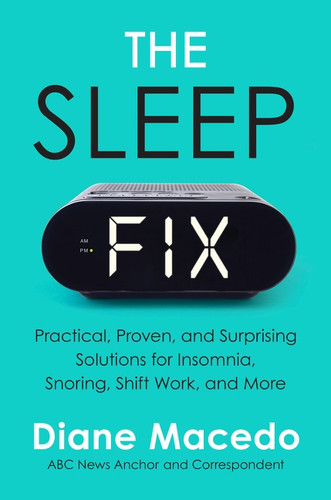
Years ago before I became a naturopathic doctor I was a mail carrier. For 1 ½ years I had to been in for work at 7:30 AM. Often 6 days a week. No matter how little I slept or tired I was, I could not fall asleep until at least 2:00 AM. At times I fell asleep from 4:00 to 5:00 AM and then had to wake up in 2 – 3 hours to get to work. I wish I had the information in The Sleep Fix back then.
Sleep is often poorly addressed by the natural health field as a whole. Not that it can’t be fixed without sleeping pills. It’s just that most people don’t understand sleep that well.
In naturopathic school there was no class on sleep. Not even a lecture on it. I don’t even think the sleep hormone adenosine was mentioned in physiology class. Rather here and there a sleep tip would be brought up. Stuff like turning off screens at night, how electric lights interfere with melatonin, perhaps some supplements.
Yes, there are some herbs that can help with sleep. But these can not be used to reset the circadian rhythm, nor can you drug someone to sleep with herbs like valarian and chamomile. Often herbs for sleep are taken out of context and thus are not very sucessful.
Unfortunately this cavalier attitude, that all you need is some simple sleep tips, maybe some herbs or l-theanine is pervasive in the natural health field. This leaves people who are high devoted to living as healthy as possible, still struggling. Either they go without enough sleep, or resort to sleeping pills no matter how much they wish to avoid pharmaceuticals.
Besides not working, many of the common sleep tips just create more stress, making sleep worse.
The Sleep Fix by Diance Macedo is a book that actually gets this.
Insomnia or Circadian Rhythm Disorder?
In the first chapter Macedo jumps into the difference between insomnia, circadian rhythm disorders and sleep apnea. Which is important. Typically these different sleep problems become muddled into one. Although circadian rhythm disorder can be called a type of insomnia. The key point is these are different, and need their own treatment.
One of the major themes of this book is that if someone has a severe circadian rhythm disorder, their their body doesn’t know what time to go to sleep. You just tell someone to darken the room or meditate and then it’ll somehow just all go away.
Additionally, many of the sleep tips handed out (and this is very common in holistic health), just make people more stressed out. For example, avoiding screens for hours before bed causing someone to feel bored and anxious because they don’t know what to do. Meditation which in theory is a great way to calm down the mind, may turn into just an opportunity to sit for the mind to rehash all daily stresses, without the distraction of TV, just making it worse.
Which is not to say these strategies can’t be helpful for some people. But if the proper steps are not taken to correct a circadian rhythm disorder, these other tips are not going to help. Also, there are some people who don’t have to add so many additional rituals to their day just in order to sleep.
The best sleep book I’ve read
The problem I see with other books written to help people sleep, is boxing everyone into the same category and giving them all the same advice. The time and energy some insomnia fixes can be significant. Which is not exactly something which people who are not sleeping well usually have.
Unlike other books, The Sleep Fix does not bore the reader, with perhaps 20 pages of useful information spread out over 200 – 300 pages (a big problem I have with many health books). It is dense with information, and each reader can choose what is applicable to their unique situation.
The Sleep Fix is a great book which has taught me a lot and would happy to recommend to any client who needs a better understand of insomnia and how to fix it.